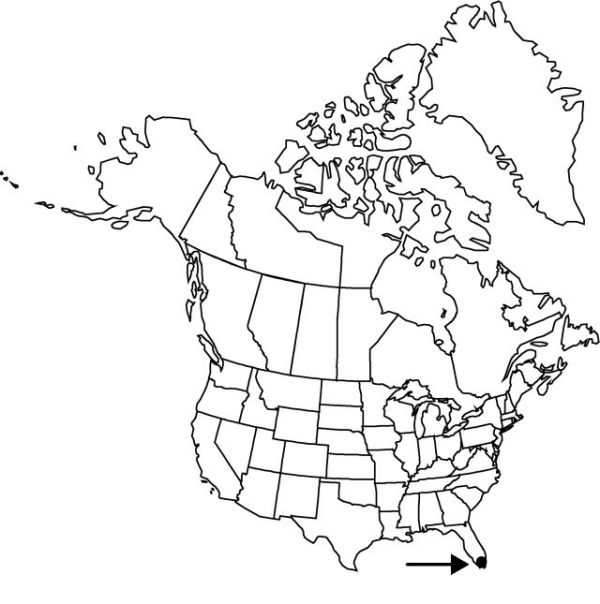Epidendrum strobiliferum
Ned. Kruidk. Arch. 4: 333. 1859.
Plants creeping to pendent, to 30 cm. Roots basal or from proximal branches, 0.5–1.5 mm. Stems 1, compressed distally, branched, to 23 cm. Leaves 2–8, near apex of stem; petiole 6–8 mm; blade lanceolate-elliptic, 2-lobed, 1–2.8 × 0.3–0.7 cm, leathery. Inflorescences from branches, distichous, imbricate, usually pendent, 10–17 mm; peduncle greater than 5 mm. Flowers 1–4, usually 3, with underside of lip always facing rachis, not resupinate, simultaneous, pale yellow, occasionally marked with reddish; dorsal sepals ovate, apex acute; lateral sepals obdolabriform, somewhat wider at base, 3–5.4 × 1.2–2.1 mm; petals linear-elliptic, somewhat falcate, 3–5.2 × 0.5–0.8 mm; lip triangular-ovate, 3–4 × 2–2.4 mm, base with pair of lamellae, apex acute to acuminate; column 2 mm, with prominent tooth on each side, 2 smaller ones distally; anther ovoid, 2-fid; ovary with small swollen vesicle underneath, behind lateral sepals, 4 mm, covered by conduplicate, subimbricating bracts, 6–7.5 mm. Capsules ovoid-ellipsoid, 9–10 × 5–6 mm; pedicel and beak absent.
Phenology: Flowering Oct–Nov, Mar.
Habitat: On smooth barked trees in and around cypress swamps and heads
Elevation: 0–30 m
Distribution

Fla., Central America, South America.
Discussion
Epidendrum strobiliferum grows throughout the Neotropics to Peru and Brazil.
Selected References
None.